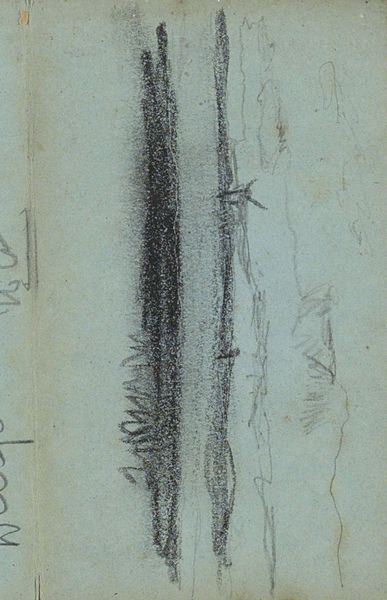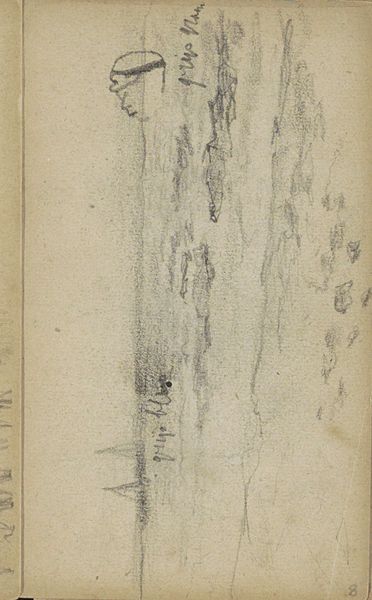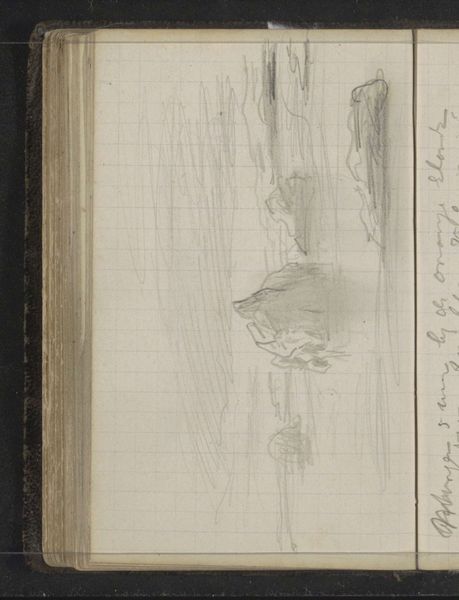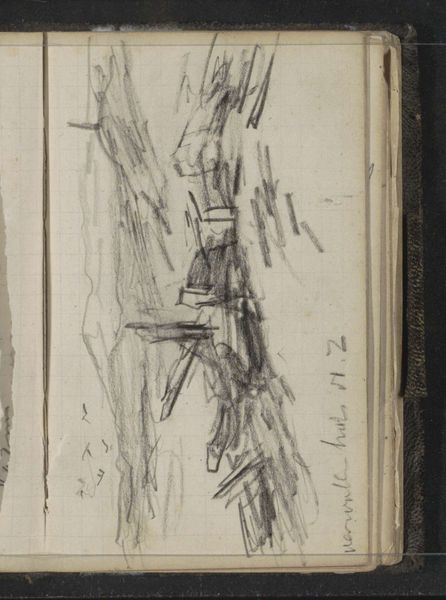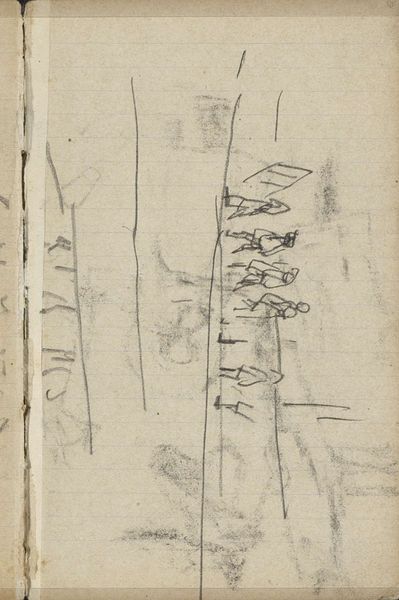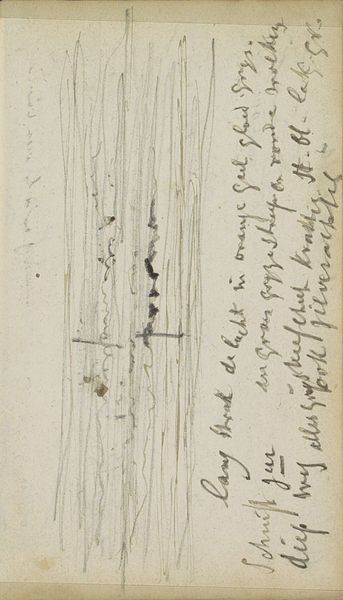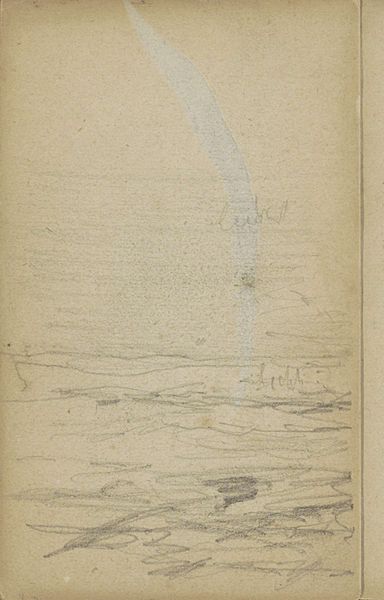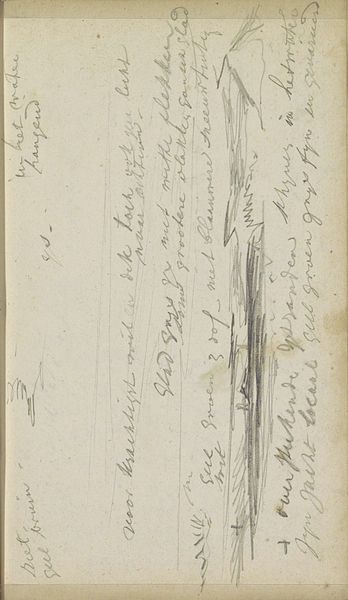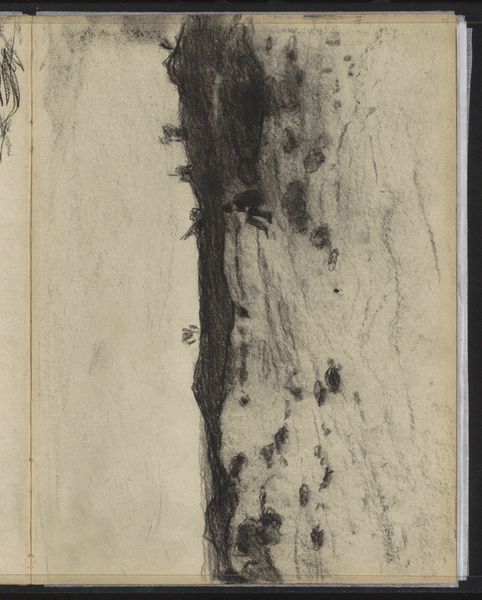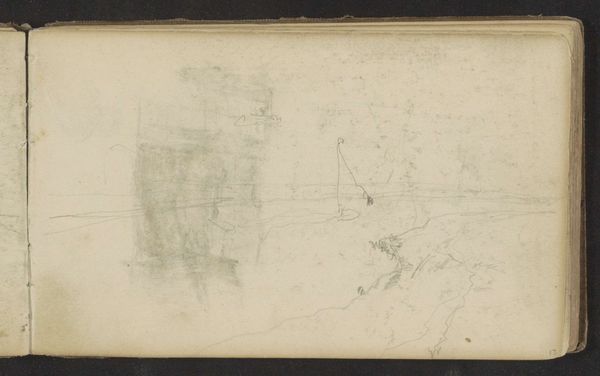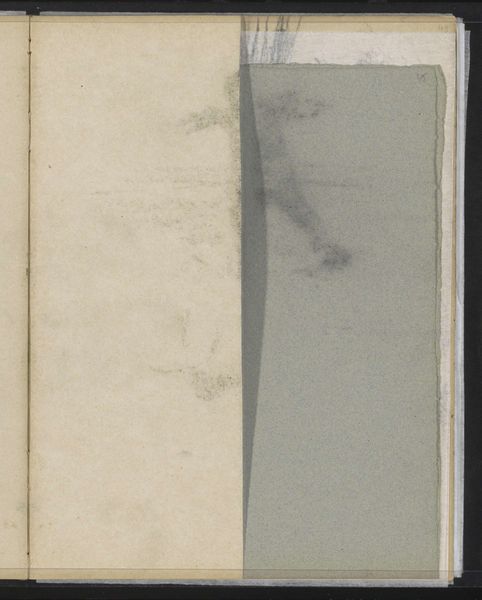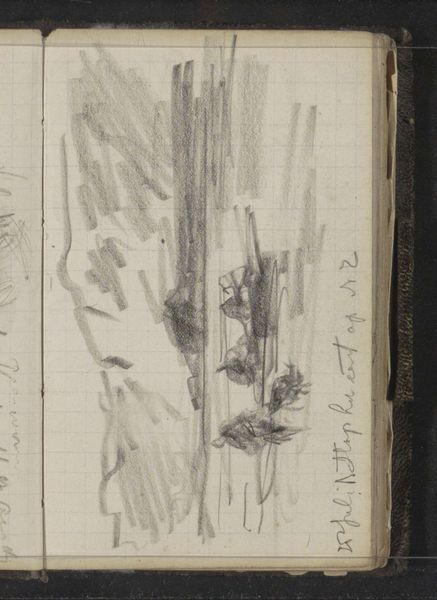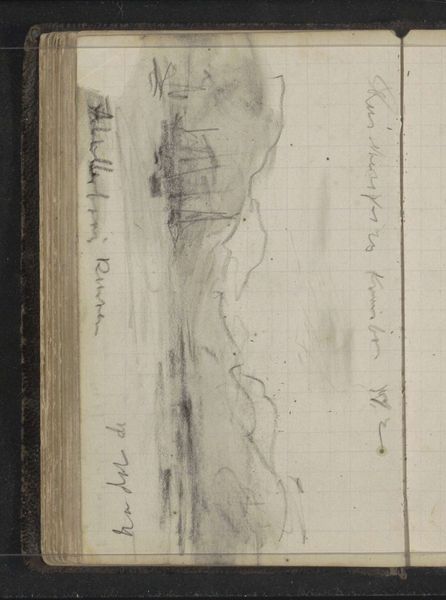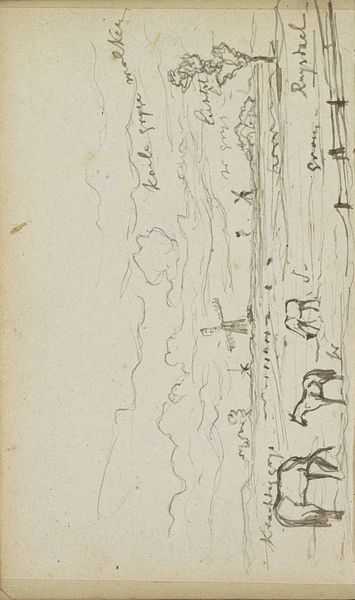
drawing, paper, pencil
#
drawing
#
pencil sketch
#
landscape
#
paper
#
sketch
#
pencil
#
watercolor
Copyright: Rijks Museum: Open Domain
Johan Hendrik Weissenbruch made this graphite drawing, ‘Zeegezicht met een figuur’, or ‘Seascape with a figure’, on paper at an unknown date. It is a work that invites us to consider the social and cultural conditions that shaped landscape art in the Netherlands. The Hague School artists, of which Weissenbruch was a central figure, reacted against the earlier Romantic tradition of landscape painting which dominated Europe in the first half of the 19th century. These artists sought to represent the local landscape and rural life in a more realistic and unidealized manner. In doing so they reflected the cultural values of a nation undergoing rapid industrialization and modernization. Weissenbruch's drawing is a wonderful example of this new approach. We can see, through his close observation of nature and his commitment to portraying the landscape as it appeared before him, the influence of new scientific thinking and the emergence of a more democratic view of the world. To understand the meaning of works such as this more fully, the art historian might turn to archival sources, exhibition catalogues and contemporary critical reviews. Through this research, the role of art as a reflection of social and institutional context becomes clear.
Comments
No comments
Be the first to comment and join the conversation on the ultimate creative platform.
